Legislature passes budget to help victims of COVID-19
Maintaining social distancing and meeting at the Bank of Springfield Building, a multi-purpose arena that holds 80,000, the Illinois House approved a $42.6 billion budget to provide support to victims of the coronavirus and ensuring that statewide services to residents continues, ending an 11-week recess forced by the COVID-19 pandemic.
By Ray Hanania
Maintaining social distancing and meeting at the Bank of Springfield Building, a multi-purpose arena that holds 80,000, the Illinois House approved a $42.8 billion budget to provide support to victims of the coronavirus and ensuring that statewide services to residents continues, ending an 11-week recess forced by the COVID-19 pandemic. The budget was quickly approved by The Illinois Senate.
Like all of American society, the legislature has been out of session for an extended period because of the threat of the virus contagion, managing government through offices including with working with Gov. J.B. Pritzker.
Union leaders such as the Local 881 United Food and Commercial Workers (UFCW) praised the legislature for a series of actions that included the adopted earlier of SB471 which supports retail establishments hardest hit by the pandemic.
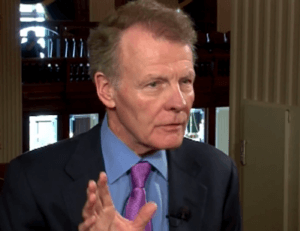
Illinois House Speaker Michael J. Madigan said the legislature has been working to provide relief and to ensure the programs and services delivered by the state for its people continues uninterrupted.
“The COVID crisis has changed our state in profound ways. It has claimed the lives of family members, veterans, our most vulnerable residents, and in particular it has brought tragedy in communities of color. The people of Illinois are grappling with significant challenges to their daily lives and historic levels of unemployment, especially those least able to afford it. Nurses, doctors, first responders, and frontline workers across Illinois continue to battle COVID-19 and face risks to keep us safe,” Illinois House Speaker Michael J. Madigan said.
“This special session, House Democrats stood with all of them, passing legislation ensuring essential services continue uninterrupted, and providing resources for the many people whose lives have been affected by this pandemic.”
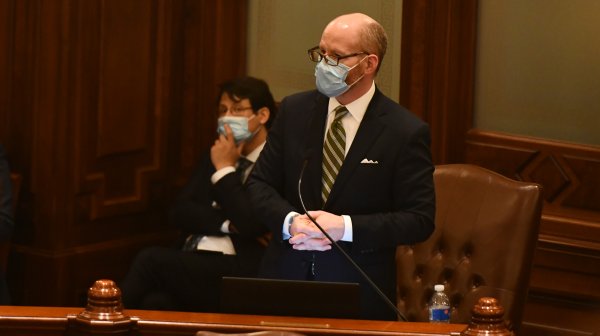
The budget also calls for $350 million increase in state aid to school districts.
Madigan said that the legislature and Governor will have to make “difficult decisions” to pass a state budget that “provides much-needed funds for testing, access to health care, rental assistance, unemployment benefits for those facing layoffs and furloughs, resources to help small business owners rebuild their life’s work, and job training for people whose careers have been disrupted.” He said the budget proposal also “provides needed flexibility to keep services running during the crisis, while also increasing legislative oversight of state spending to aid in a strong, fair recovery.”
“Working across the aisle, we worked with business and labor groups to pass a package of protections for first responders, health care workers and other essential employees who have been exposed to the virus while on the job,” Madigan said.
“We provided immediate relief for property taxpayers by suspending late payments and tax sales, and took steps to ensure seniors, veterans and people living with disabilities will be able to keep their tax exemptions without having to reapply. We worked to help students and teachers succeed – whether instruction occurs in the classroom or online. We also expanded Medicaid, increased access to tele-health and mental health resources, and secured additional support for hospitals battling the virus in rural and low-income communities,” said Illinois Republican Party Chairman Tim Schneider who has constantly attacked the Democratic Controlled House, Senate and Governor’s office.
Madigan noted that the state still has issues that need to be faced as the pandemic winds down, adding, “We recognize that many more important decisions for our state are yet ahead, and our work will continue to help the people of Illinois during these challenging times.”
Republicans criticized the budget noting that it calls for $6 billion in additional spending beyond the revenues of the state, acknowledging that the revenue shortfall is caused by the COVID-19 pandemic and drops in revenues such as retail sales taxes and delayed tax collections by local county.
“This is an outrageous budget built on a fantasy, financed by billions of dollars in new debt, and born out of lawmakers inability to make tough decisions on behalf of taxpayers. Democrat legislators have abdicated their duty to the people of Illinois. Instead of addressing our challenges head on, they’ve kicked the can down the road and made things infinitely worse. This is a slap in the face to all of us and a backhand to future generations for good measure.”
“I urge the Governor to follow the lead of struggling families and small businesses and start making tough choices to curb our spending during this unprecedented crisis. Now is not the time to make more promises that cannot be fulfilled. And at the very least, the Governor must veto the pay raise Democrat lawmakers have authored for themselves.”
Democrats said the budget represents “tough choices” needed to address the problems caused by the coronavirus while seeking to support existing programs to ensure the state continues to provide services. They said the State GOP has failed to provide sensible alternatives and is led by a leadership that gives voice to extremists with political agendas.
Republicans attacked the budget, asserting:
- Spends nearly $43 billion despite revenues totaling almost $37 billion.
- Spends billions MORE than last year’s budget.
- The $37 billion revenue figure includes $5 billion in new debt.
- The remaining budget hole is financed on fantasies of a massive federal government bailout that doesn’t currently exist.
- With the $5 billion in new debt and approximately $6 billion in a fantasy federal bailout, the majority Democrats plan to spend $11 billion more than they plan to bring in.
- Includes a $1,800 pay raise for legislators.
- Includes free healthcare for illegal immigrants over age 65 (Medicaid eligibility).
Democrats like State Rep. Camille Y. Lilly, D-Chicago, praised the budget arguing it advances significant protections for families, workers and voters during a special session of the Illinois General Assembly to address issues arising from the COVID-19 pandemic.
“Restoring and reopening Illinois cannot happen without making sure our most vulnerable communities have the resources and support they need during this pandemic,” Lilly said. “COVID-19 has caused significant disruption to all of our lives and I am committed to ensuring that recovery from this pandemic is accessible and equitable for all Illinoisans, particularly the essential workers and first responders who have put themselves at risk to keep us all safe during this crisis.”
Lilly supported a balanced budget that prioritizes critical services for families and local communities, including increased funding for Medicaid as well as full funding for unemployed workers. Lilly fought to include $719 million in new funding for public health services and $416 million in funding to ensure adequate and equitable access to COVID-19 testing. Furthermore, Lilly worked to ensure that funding was protected for domestic violence survivors, homelessness prevention and senior care.
“More than ever, the pandemic has shown the need for supporting workers and their families and ensuring access to safe workplaces,” Lilly said. “That’s why I supported a critical worker protection package for essential employees and first responders. They’ve taken serious risk to ensure we have access to grocery stores, pharmacies and emergency services during this crisis and we owe them laws that recognize their contributions.”
Lilly supported Senate Bill 471, a worker protection package that eases the process of receiving workers’ compensation benefits for essential workers and first responders, including EMTs, fire fighters and police officers. The worker protection bill supported by Lilly also allows laid off and furloughed workers to recoup a greater percentage of their previous income through unemployment insurance.
“The COVID-19 pandemic has reiterated the fact that health care is a necessity because if you don’t have your health, you don’t have much else,” Lilly said. “It is paramount that as we recover from this pandemic, we ensure that all people have access to quality and affordable health care services.”
Lilly fought for critical expansions of access to mental health care and tele-health services in Senate Bill 1864. This measure also directs state health officials to develop a plan for legislators on legislative steps necessary to make health care more affordable for all people in Illinois.
Lilly co-sponsored Senate Bill 1863 to help ensure that Illinoisans can access the ballot and exercise their right to vote safely and securely during the pandemic. Lilly’s voter protection measure expands the ability of Illinois voters to vote-by-mail and allows for the creation of curbside voting opportunities and special voting hours for older people.
The budget backed by Lilly also provides relief for small businesses, relief for renters and homeowners and the preservation of capital infrastructure development. Nearly $300 million in relief is included for renters and homeowners with mortgages. Using federal funds, hundreds of millions of dollars for small business relief is contained in the budget through a grant program, included for businesses owned by minorities and women. Additionally, Lilly fought to protect capital infrastructure spending for jobs and economic development in underserved communities.
“During this extraordinary time in our state, the legislature took important steps to pass a balanced budget that protects critical services for families in our neighborhoods, offers protections for essential workers and first responders and protects voters,” Lilly said. “As we move forward towards safely reopening our state, it is imperative that we continue to take affirmative steps to provide support and relief for families in need and ensure health care access for all.”
Local 881 United Food and Commercial Workers (UFCW) was successful in getting the Illinois General Assembly to pass first of its kind protections for essential retail workers who are attacked on the job during the COVID-19 public health pandemic.
SB471, which passed the Illinois House 95-10 and the Illinois Senate 47-3, now heads to the Governor’s desk for his signature and would become effective immediately. Motivated by representing over 34,000 frontline retail workers who are increasingly reporting customer assaults while on the job, Local 881 UFCW amended the Criminal Code to ensure:
- When the Governor or Mayor of a municipality declares a state of emergency, and for six months after, the battery of a merchant is aggravated battery when the merchant is performing his or her duties, including, but not limited to, relaying directions for healthcare or safety from his or her supervisor or employer or relaying health or safety guidelines, recommendations, regulations, or rules from a federal, State, or local public health agency.
As public health officials including the Center for Disease Control, Illinois Department of Public Health, and the Chicago Department of Public Health, have mandated masks to be worn when in public, to abide by social distancing in public spaces like grocery stores, and while many retailers have imposed the same policies and enacted some store limits on in-demand products, it has increasingly fallen to frontline workers to enforce government and company mandates. Unfortunately, that has led to a sharp and alarming increase in assaults on retail workers from customers. Examples of that in Illinois and nationally have been covered here, here, and here.
Applauding the passage of SB471, Local 881 UFCW President Steven Powell, offered the following statement:
“Passage of SB471 is a victory for retail workers in Illinois. On behalf of the over 34,000 members of Local 881 UFCW, who continue to staff the frontlines of the Coronavirus pandemic, keeping our communities and families fed and medicated, we thank the Illinois General Assembly for acting quickly to pass the bill we crafted to provide meaningful protections for workers who face the brunt of customer panic and frustrations during disasters.
As we have all witnessed, grocery stores have become chaotic environments for both customers and workers. Unfortunately, some customers have not been acting in a safe and responsible manner and have put our member’s safety and physical wellbeing in jeopardy. Each day, across thousands of shifts, our members encounter hundreds of thousands of shoppers as they continue to staff grocery and retail stores across our state. It is no surprise then that our members are so adamant that customers abide by reasonable health guidelines so that they can protect themselves, their co-workers, their families, and the wider community. They should be able to do so without fear of retaliation and physical harm.
Not only do workers in this vulnerable position face the threat of exposure by being in close proximity to customers ignoring rules of social distancing or refusing to wear masks, they at times, have also faced the wrath of customer’s frustrations, with an alarming increase of reports of physical attack, and in one terrible case in Michigan ending in a loss of life. Without companies stepping up to provide necessary crowd control or security officers to enforce store and government mandates before a customer enters, this new law will help hold individuals accountable for assaulting retail workers who are just trying to do their job and keep everyone safe.
Special thanks and sincere gratitude go to all the supporters of the bill, but especially the sponsors and key advocates including Senators Kimberly Lightford, Elgie Sims, and Ram Villivalam; along with Representatives Jay Hoffman and Marcus Evans. Our members honor their continued dedication to working families.”
Democrats praised the budget.
Senate Majority Leader Kimberly A. Lightford (D-Maywood): “One budget is not going to bring our state back from such a devastating crisis, but what we can do is focus on driving resources to education, social safety nets and small businesses that have been overlooked by other aid programs.
“We were able to fund programs for struggling day cares, provide grants that will offer rent and mortgage relief, minority and small businesses, and increased funding for healthcare services with the goal of reaching those facing the depths of this pandemic.”
Assistant Majority Leader Tony Munoz (D-Chicago): “Increasing funding for immigrant welcoming centers and allowing undocumented seniors to qualify for Medicaid will be significant in the communities I represent as they were left out of federal aid packages. I am glad we were able to drive resources to programs that will help small businesses, provide rent and mortgage assistance, and deliver important healthcare services.”
Senator Heather Steans (D-Chicago): “It has never been more important to preserve state services,” Steans said. “This budget maintains our funding levels in the most important areas, while targeting increases to the Dept. of Children and Family Services and programs that help seniors and the developmentally disabled – especially crucial as we respond to the COVID-19 pandemic.”
Assistant Majority Leader Linda Holmes (D-Aurora): “I believe an important part of the budget we passed today is that we will make our full pension payment as planned. That is such a cornerstone of our ongoing efforts to address our underfunded pension systems and state finances, alongside our current COVID-19-related budget issues at hand.”
Senator Scott Bennett (D-Champaign): “The state’s budget has been significantly impacted by COVID-19, and we’re facing incredibly difficult financial times. Planning for an economic recovery will depend greatly upon education and workforce development. That’s why I voted for a budget that will improve the quality of life for the people across the state.”
Senator Bill Cunningham (D-Chicago, South Suburbs): “I’m particularly pleased to see that this budget contains an additional investment of $59.2 million in the Illinois Department of Employment Security, which administers our state’s unemployment insurance program. During this crisis, we have seen an unprecedented number of unemployment claims filed, and it’s critical that we ensure IDES has the resources necessary to deal with them. This added funding will be vital to protecting Illinoisans displaced by the pandemic.
Senator Terry Link (D-Indian Creek): “Under this budget, we’re taking care of the things we need to keep our state running. For instance, we’re fully meeting our funding obligations to retain stability for our pension system. We’re also fully funding our public schools, ensuring that no school district will receive less funding than it did last year.”
Senator Laura Fine (D-Glenview): “The COVID-19 pandemic clearly demonstrates that we must make sure all Illinoisans have the tools they need to face critical and unexpected challenges. As we navigate post-pandemic life, this budget will provide a strong foundation for Illinois to begin its recovery and give the next generation the support they need to build a better state, country and world.”
Senator Robert Peters (D-Chicago): “This has been one of the most trying few months in most of our lives, and there are folks in my community and all across the state who have been hit particularly hard by the coronavirus pandemic. Working class families are struggling. This budget provides much needed services, support and relief to the families that need it, and I’ll always support budgets that do this.”
Senator Rachelle Crowe (D-Glen Carbon): “While I have faith in teachers and students adjusting to e-learning, investing $12.6 billion in public education is fundamental to our students’ success and access for future opportunities. To ensure students are not falling behind, we must establish economic relief for our school districts.”
Senator Omar Aquino (D-Chicago): “The historical inequalities in our state aggravated the impact of COVID-19 among minority groups. After the federal government left these residents with no assistance or stimulus, our job in Springfield was to provide a functioning social safety net for them and the rest of the state.”
Senator Cristina Castro (D-Elgin): “Now more than ever, it’s important that we create some kind of stability in a time of such uncertainty. This budget maintains education funding at all levels, keeps our obligation to make the full pension payment, and, most importantly, provides real relief and support to struggling families in our state.”
Senator Sara Feigenholtz (D-Chicago): “It’s essential that we retain the critical services people need to support them during this pandemic, and that’s what this budget does. Included in this budget is a $178.5 million funding increase to the Department of Children and Family Services to help continue to improve the agency and better serve our state’s children. This investment is particularly important now as children spend increased time at home, putting them at greater risk of abuse and neglect.”
Senator Ann Gillespie (D-Arlington Heights):“Too many people are left out of our health care coverage system because it is unaffordable for low- and middle-income families. This study will look at a variety of options and best practices used in other states to see which is the best fit for Illinois.”
Senator Jacqueline Collins (D-Chicago): “This budget maintains funding for schools and public safety, and contains important increases to the Dept. of Children and Family Services and to programs like Community Cares, which specifically help vulnerable people live independently in their own homes. That is more important during this pandemic than ever.”
Assistant Majority Leader Iris Y. Martinez (D-Chicago): “Regardless of the financial downfalls caused by the COVID-19 pandemic, our state remains committed to our students and residents. I was proud to negotiate and vote for a budget that makes responsible decisions based on our economic reality, while maintaining ample funds for P-12 public schools and the Department of Human Services to help our state’s most vulnerable population.”
Senator Suzy Glowiak Hilton (D-Western Springs): “Our local governments will continue to receive level funding, even during these difficult times. Local government distributive funds keep our communities alive and it is more important than ever that we protect these services. This budget also keeps our education system stable. Our children already face unprecedented challenges due to the pandemic. Reducing school budgets now was not an option and I’m glad we worked together to keep this funding level.”
Senator Elgie Sims (D-Chicago): “As a budgeteer, I saw firsthand how difficult it was to craft this budget during these unprecedented times, but I take pride in knowing that it will provide needed relief and address issues of inequity in marginalized communities throughout the state.”
Senator Christopher Belt (D-Centreville): “As we progress through this health and economic crisis, this budget is a stepping stone toward financial recovery. Providing additional resources for underserved communities that have been hit hardest by COVID-19 will hopefully help address the disparities that have always existed. The health and wellbeing of children, families and early childhood care providers in Illinois is of utmost importance. I’m pleased they will receive relief in this budget to sustain their quality of life.”
Senator Emil Jones, III (D-Chicago): “One budget is not going to provide all the recovery we need, but this is a good start. Some families entered the Stay at Home order in already difficult economic positions that have only worsened as employees were let go from their jobs as a result of the pandemic.”


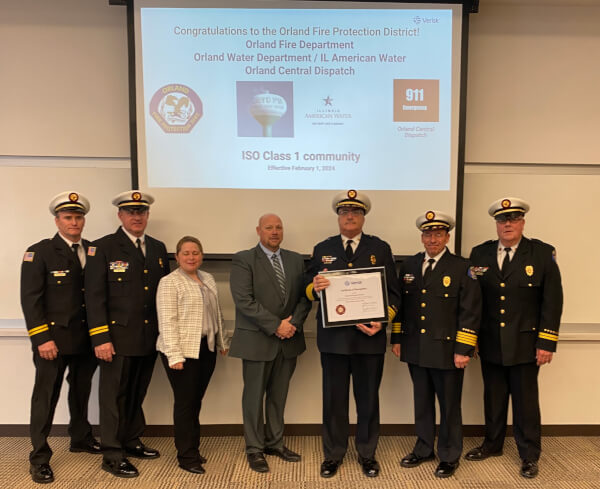
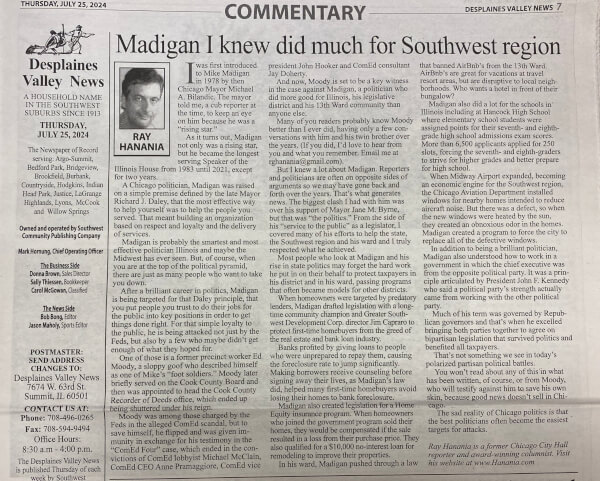

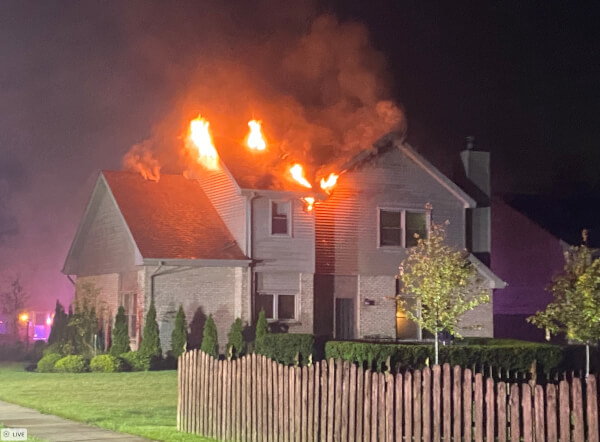
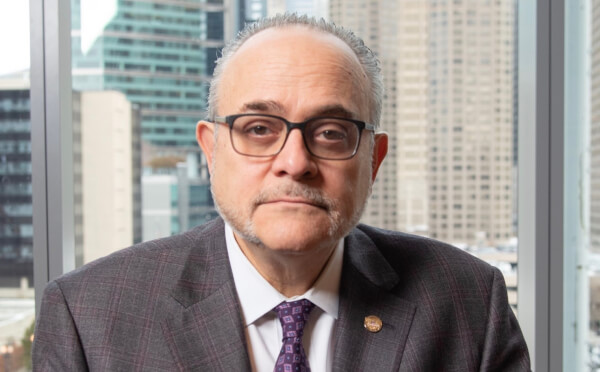


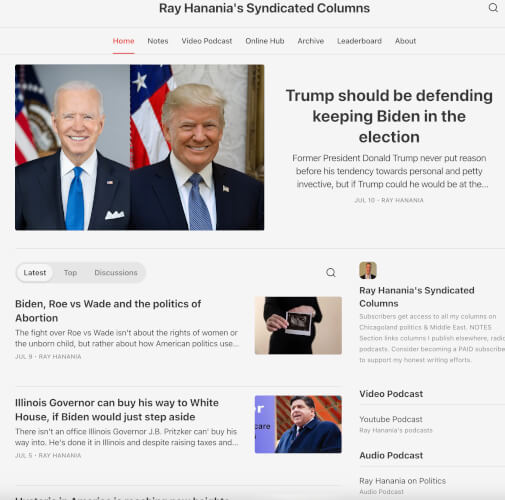

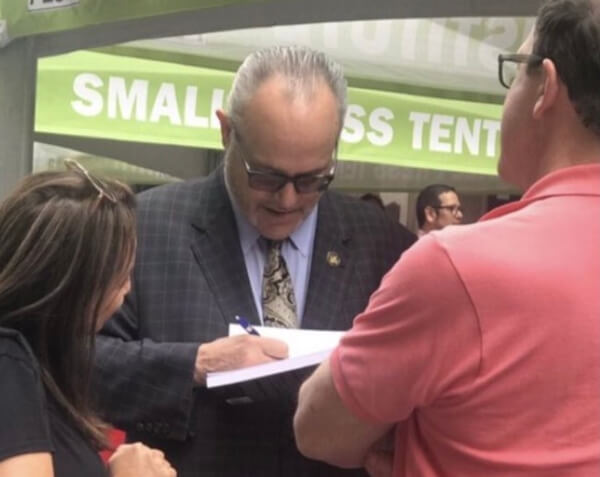
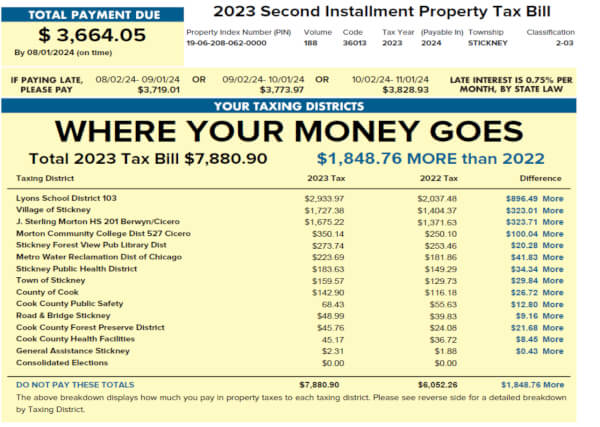




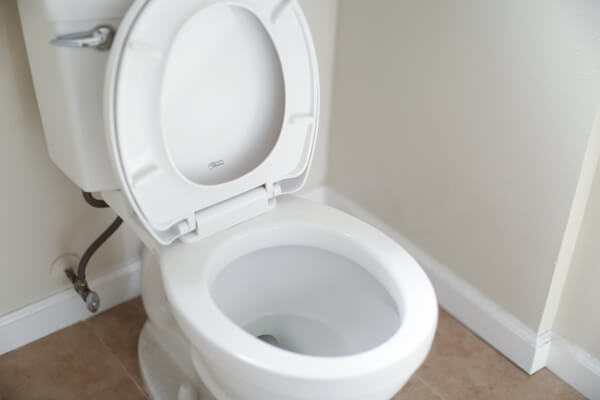





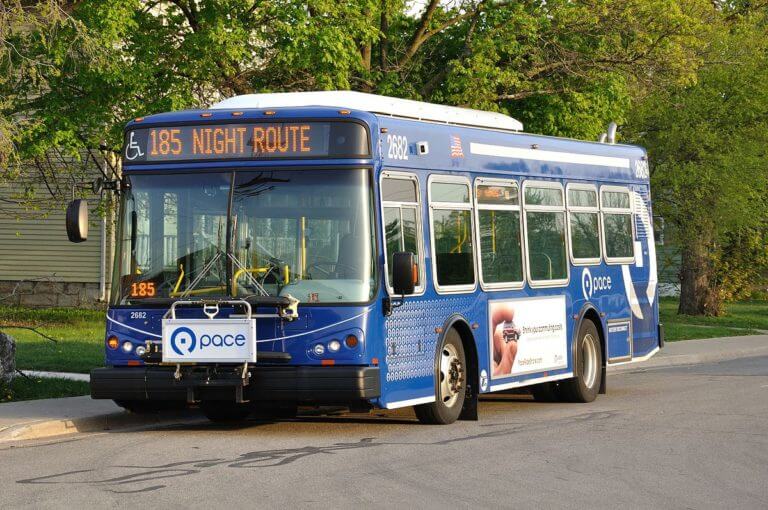


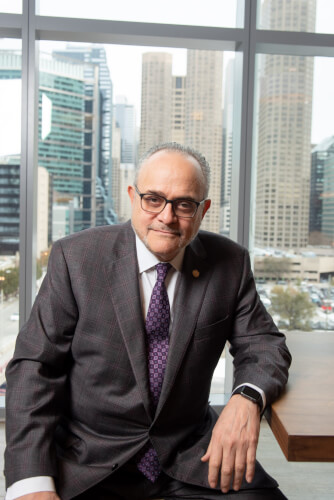
Comments on “Legislature passes budget to help victims of COVID-19”